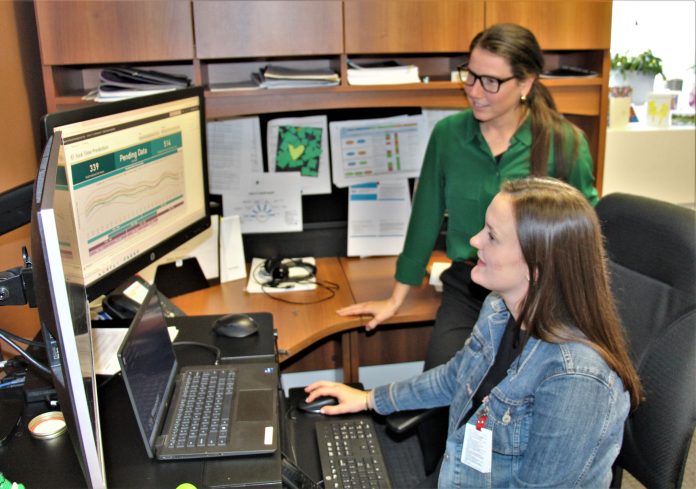Waypoint Centre for Mental Health Care is developing a new artificial intelligence (AI) tool
that could significantly reduce the expense and disruption caused by staff sick calls — by
predicting them before they happen.
“In many cases, when somebody calls in sick, we may have to rely on overtime or agency
staff to fill that shift, which costs the organization considerably,” said Jennifer Crawford, PhD, Director of Data Analytics.
The department has developed a machine learning model, which is a program that can
analyze years of historical data — every day, every hour, across clinical programs — to
forecast when and where sick calls are most likely to occur.
“The model learns from past data,” explained David Wen, PhD, the Data Scientist who
developed it. “It summarizes that data and makes a prediction for future sick positions.”
Unlike manual analysis, this AI model can handle a much deeper level of complexity. “A
human can look at one unit or one month of data,” said Wen. “But it would be extremely
difficult for a person to summarize five years of data across multiple programs and make a
reliable prediction.”
Sidestepping the privacy concerns that would come with focusing on individual employees,
the model will aggregate data at the program level. That output will then be delivered in a
user-friendly dashboard within Waypoint’s business intelligence portal, giving clinical managers real-time visibility into predicted sick-time spikes. “It’s not just an Excel spreadsheet or a file someone has to dig through,” said Crawford. “It’s at their fingertips, embedded in the systems they already use.”
A pilot project is being rolled out in the coming months. Clinical managers will be able to
compare the model’s predictions with actual outcomes, and use that information to make
informed staffing decisions.
“For example, if the model predicts that four clinicians may call in sick,” said Data Analyst
Kathleen Power, “communication needs to occur between clinical managers and the staffing
office to determine how many of the positions will be filled based on clinical activity and
program needs. This will help build trust in the model and ensure that humans have the final decision.”
Trust is a key theme in the project’s design. AI remains unfamiliar or concerning for many in health care, and Waypoint is prioritizing transparency and governance in its rollout.
“One of the really important things is there is always a human in the loop,” said Crawford. “The model makes a prediction, but it’s up to the clinician or decision maker who evaluates it to say, ‘Does this actually make sense in context? Or are there other factors in my environment that are not being captured by this data?’”
Waypoint has developed a governance framework to ensure all AI use — whether developed in-house or brought in from outside vendors — meets high standards for privacy, safety and ethical use. This predictive sick-time model is just one of several AI pilots currently underway,
alongside an AI scribe to support medical documentation and a crisis early-warning system for patient care. With AI adoption a strategic priority for 2025-26, Waypoint is taking deliberate, practical steps to explore how advanced analytics can support both operations and clinical care.
“We have new and more advanced analytical methods that can fundamentally transform
how we support our staff in delivering care,” said Crawford. “And there’s never been a more
critical time to act. These technologies are at the forefront of health care and, by adopting
them now, we can lead the way in shaping higher-quality mental health care while driving
greater operational effectiveness and long-term sustainability.”
Other AI applications being explored by Waypoint include analyzing financial data, predicting alternate-level-of-care need, and assessing the risk of 30-day readmissions — all part of a broader vision to improve efficiency and outcomes.








